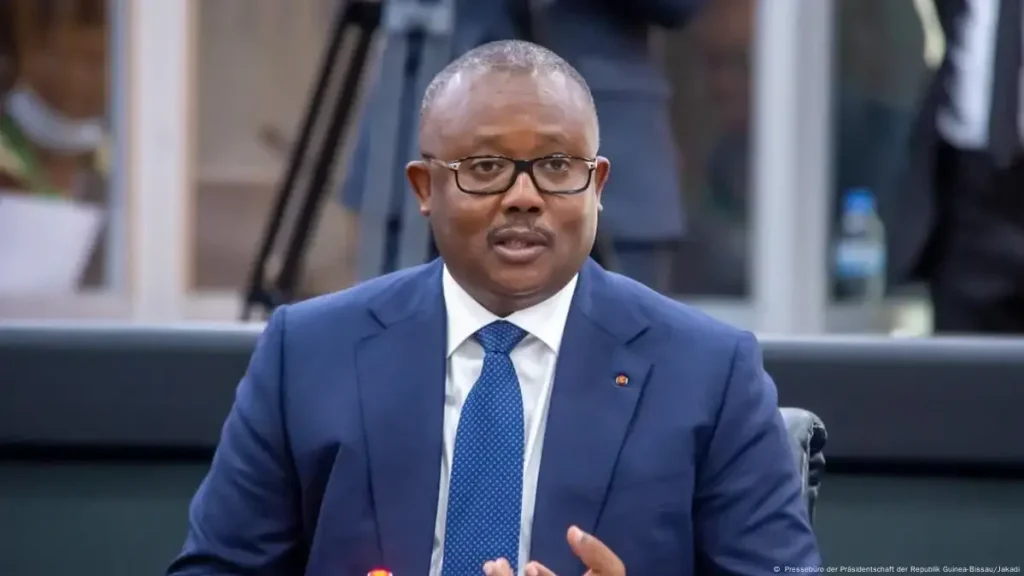The Guinea-Bissau President Umaro Sissoco Embaló dismissed Prime Minister Rui Duarte de Barros on Thursday, August 7, 2025.
He appointed Braima Camará, a former Madem G15 opposition party coordinator, as the new prime minister.
This move, announced via presidential decree, aims to strengthen Embaló’s position for a likely second term in the November 2025 elections.
The decision comes amid rising political tensions in the West African nation, which has faced significant instability since gaining independence from Portugal over 50 years ago.
The timing of the prime minister replacement has sparked debate. Many see it as an effort to consolidate power before the crucial vote.
Guinea-Bissau’s history of coups and political volatility adds weight to the controversy surrounding Embaló’s leadership.
Details of the Prime Minister Replacement
Rui Duarte de Barros, prime minister since December 2023, was replaced by Braima Camará, a key Madem G15 figure. Camará, once an ally of Embaló, reconciled recently after a public falling-out.
The presidential decree, effective immediately, gave no reasons for Barros’s dismissal.
Camará’s swearing-in is set for Today, August 8, 2025, at the presidential palace.
This change marks Embaló’s fourth administration in five years, reflecting ongoing instability. Camará’s appointment aims to unify Madem G15 factions. It may also counter opposition challenges as the election nears.
Controversy Over Embaló’s Presidential Term
Guinea-Bissau’s constitution limits presidents to two five-year terms. The opposition claims Embaló’s term ended on February 27, 2025, and refuses to recognize him.
However, the Supreme Court ruled his term extends to September 4, 2025. Embaló set the election for November 30, 2025, stating his term runs until then.
This has fueled tensions, with the opposition accusing him of manipulating the system.
In March 2025, an ECOWAS mission to mediate the crisis left abruptly, citing threats from Embaló. This incident deepened the political divide.
Guinea-Bissau’s History of Instability
Since independence in 1974, Guinea-Bissau has faced multiple coups and crises.
Embaló, president since February 2020, has navigated challenges, including a dissolved parliament in 2023 after clashes he called a coup attempt.
The opposition’s refusal to recognize him intensifies unrest ahead of the November 23, 2025, elections.
Implications for the Upcoming Elections
The prime minister replacement is a bold move by Embaló to secure his future. Appointing Camará strengthens ties with Madem G15, boosting his campaign.
However, the opposition’s stance and the ECOWAS incident could erode voter trust. Public sentiment on social media is divided, with some viewing the change as a power grab.
As Guinea-Bissau nears the elections, Camará’s leadership and Embaló’s strategy will face scrutiny.




















